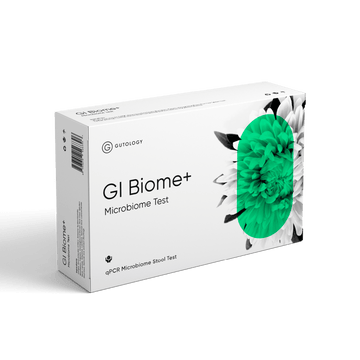Have you been to the GP about your psoriasis, only to be told “you’ll have it for life” or “all we can do is manage it the best we can”? Medical treatments are available but often come with their own side effects or stop working after a certain amount of time. More and more people are now taking matters into their own hands and managing their psoriasis using dietary and lifestyle measures. At the worst, what can happen? Improving our general health can only make us feel better, and if it has the added bonus of clearing the skin – brilliant!
There is a lot of conflicting information online about how best to manage psoriasis naturally. The truth of the matter is that we are all biologically unique – what works for one person, won’t necessarily work for everybody. There are certain trends we can spot throughout populations and there is more and more research coming out all the time exploring the link between what’s going on inside and outside the body. To really understand the root cause, though, we need to look at each individual as a unique entity.
One way to do this is via gut microbiome testing. The Gut-Skin axis is a fascinating and fairly new emerging science which explores the link between what’s going on inside our guts and how this affects the rest of our body, including our skin.
The earliest studies suggesting a link between intestinal permeability (also known as leaky gut) and psoriasis dates back to 1991 (Humbert et al., 1991). Stool/microbiome testing gives us some answers as to why the gut may have become permeable in the first place and what exactly is happening in the gut right now to continue the problem.
Dysbiosis
The gut microbiome contains over 100 trillion microorganisms and weighs over 200 grams. The microorganisms include both commensal (good) bacteria and non-commensal (of which there are various categories – including gram negative and gram positive) bacteria. A healthy gut contains a good amount of diverse commensal bacteria. Ideally we would not see too many gram negatives.
Dysbiosis is an imbalance between the good and bad bacteria in the gut. Stool testing can show exactly which strains are low, which are high and if there are any pathogens present. Gram negative bacteria produce LPS (lipopolysaccharides) which cross over the leaky gut, enter the blood stream and add to the immune cascade which results in psoriasis (Visser, Kell and Pretorius, 2019).
Yeast
Yeast overgrowth is often an issue with psoriasis. There are many different strains of yeast and testing can determine which strain may be present. Too much yeast, again, adds to the overall toxic burden and upsets the sensitive ecosystem of the gut.
Parasites
These are surprisingly common in humans but don’t be alarmed! With some types of parasite, the jury is still out as to whether they could actually be beneficial to the gut. As always, interpretation is about taking a holistic look at the individual and deciding whether the parasite is causing any adverse effects.
Secretory IgA
This is an important one. It is the measure of the mucosal lining which coats the entire lining of the Gastrointestinal Tract. It is the first line of defence against fighting anything foreign which may find its way into the body. Low levels can be a reason as to why these invaders are able to stick around. It also offers another layer of protection to stop toxins crossing over the gaps in the intestine so it is important to increase it if found to be low (Mantis, Rol and Corthésy, 2011). Conversely, high levels of Secretory IgA can indicate an overactive immune system and a possible infection.
Elastase
A measure of the digestive enzymes produced by the pancreas. A common find with psoriasis is difficulties in the earlier stages of digestion. Low stomach acid can mean that food is not the correct PH to activate elastase further down the track. If food isn’t broken down fully by stomach acid and enzymes, then it can putrefy in the gut which adds to the toxic load (Proctor et al., 1979)
Inflammatory Markers
For example Calprotectin, can also be tested and can indicate a more serious underlying problem. As can the presence of blood in the stool.
The gut is an ecosystem. Functional Testing, such as microbiome testing, allows us to obtain specific answers as to which sections are out of balance. A Nutritional Therapist or Functional Medicine Doctor will be able to use these results in the context of your overall health and produce a holistic plan to rebalance the body and help the skin from the inside out.







